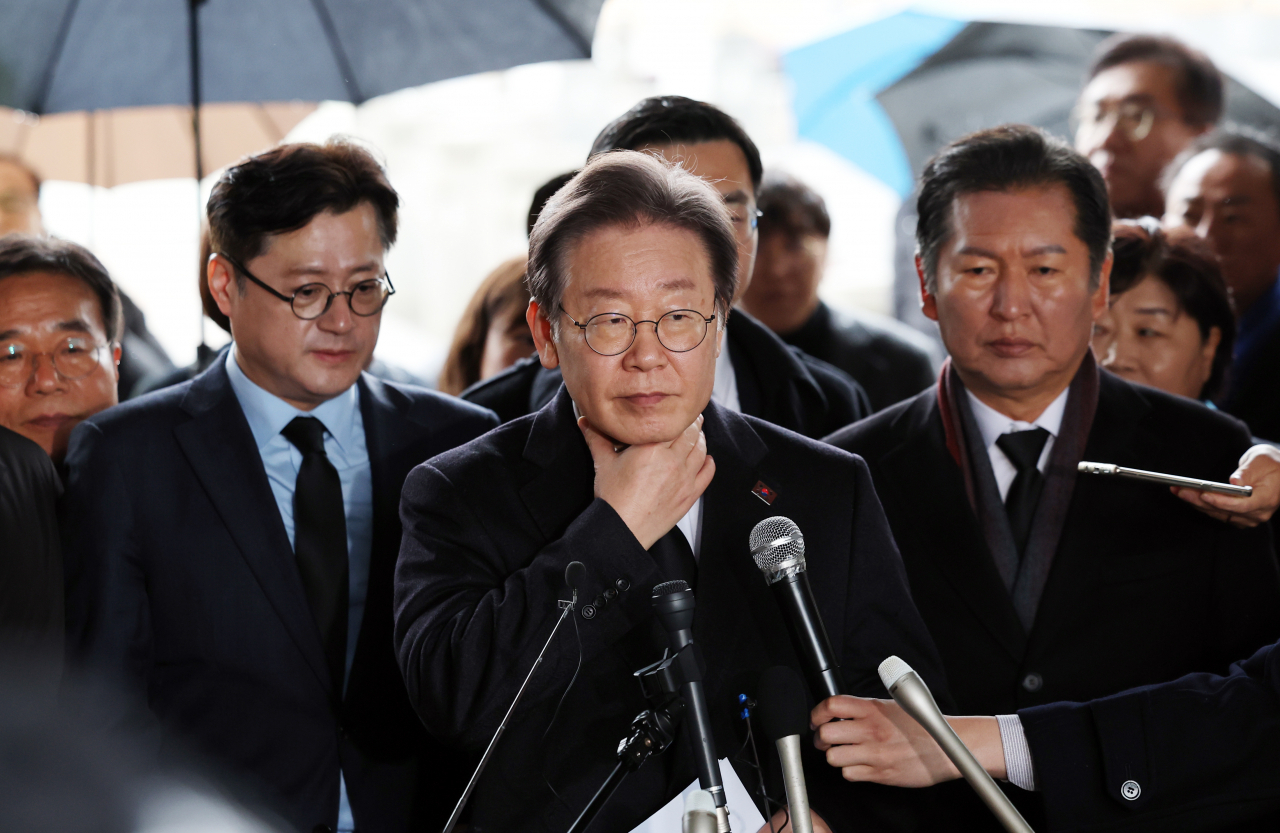Main opposition leader hints to set up satellite parties for election
By Jung Min-kyungPublished : Feb. 5, 2024 - 15:02

The main opposition leader Lee Jae-myung on Monday hinted he would launch satellite parties ahead of this year's general election scheduled for April 10, by upholding the current mixed-member proportional representation system.
Lee said the Democratic Party of Korea plans to stick with the electoral system introduced to South Korea ahead of the previous general election in 2020, which critics lambasted for failing to serve its purpose of supporting minor parties.
The system was initially adopted to help minor parties by distributing more proportional parliamentary seats to parties deemed popular among voters, but less represented in constituencies. However, the two major parties at the time, the Democratic Party and the People Power Party's predecessor the United Future Party, took advantage of the system and launched satellite parties to gain more seats.
"The mixed-member proportional representation system is unstable, but an important accomplishment (of our electoral system)," Lee told reporters in Gwangju, where he visited the graves of the victims of the 1980 Gwangju Uprising.
"We plan to find success in the current system rather than returning to the (previous mixed-member majoritarian system)," he added.
The ruling People Power Party and a faction of the main opposition have been suggesting a return to the mixed-member majoritarian system, claiming that the previous system is less complicated and transparent for voters.
"The system does not have a plausible reason behind why it distributes seats that way. It's a system that confuses voters through its complicated calculations and fails to directly reflect the voters' choice," People Power Party interim Chair Han Dong-hoon said during a party committee meeting held after Lee's announcement.
Han called Lee's actions "anti-democratic," explaining that the voters across the country should not be swayed by a single man's decision.
"Until this morning, Lee made everyone believe that he was going to return to the previous system, but he chose the other path," Han said.
"It's anti-democratic in the sense that 50 million people across the nation should keep an eye on and be swayed by Lee's actions."
The mixed-member proportional representation system was introduced under an electoral reform bill that passed the National Assembly in December 2019 to better reflect votes cast for parties in the 2020 general election. It ties parliamentary seats to the percentage of voters' support for parties and was expected to work favorably for minor parties by allocating a certain number of seats to their lawmakers.
However, the system was exploited by the two major parties. The satellite parties of the two major parties launched around 2020 secured 36 of the 47 seats initially allocated for minor parties by the system. Meanwhile, the actual minor parties including the Justice Party, the People's Party and the Open Democratic Party clinched only eight of such seats in total.
The National Assembly has a total of 300 seats formed of 253 constituency seats and 47 proportional seats.



















![[Today’s K-pop] Treasure to publish magazine for debut anniversary](http://res.heraldm.com/phpwas/restmb_idxmake.php?idx=642&simg=/content/image/2024/07/26/20240726050551_0.jpg&u=)